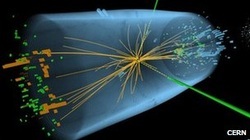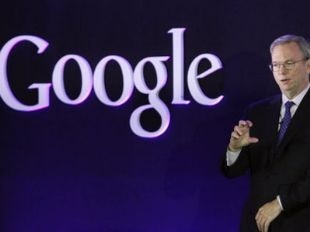The Portuguese government has revealed details of its draft budget for 2013, one of the harshest in the country's recent history.
Finance Minister Vitor Gaspar confirmed the average income tax rise would increase from 9.8% in 2012 to 13.2% next year.
Portugal was granted a 78bn-euro ($100bn; £63bn) bailout last year.
Mr Gaspar said the budget was the only way for the country to meet its targets under the bailout.
"We have no room for manoeuvre," he said.
"Asking for more time [under the bailout] would lead us to a dictatorship of debt and to failure."
He also announced spending cuts worth 2.7bn euros next year, which would include laying off 2% of the country's 600,000 public sector employees.
About 2,000 protesters gathered outside parliament on Monday to demand the resignation of the government, chanting: "The people united will never be defeated."
Acceptance of austerity measures has turned to anger
Mr Gaspar said the budget would allow Portugal to reduce its budget deficit to 4.5% in 2013. It must eventually get its deficit below the European Union target of 3% of GDP.
Portugal is currently experiencing its worst recession since the 1970s, with the unemployment rate above 15%, and predicted to rise to 16.4% next year.
Opposition Socialist Party leader Antonio Jose Seguro described the draft budget as "a fiscal atomic bomb".
Portugal's main trade union, the CGTP, said it was "an attack on the dignity of the people" and daily newspaper Diario Economico declared it "an insult to the Portuguese people".
Wages hitAs in Spain and Greece, Portugal has seen huge street protests against the austerity cuts that are needed to meet the demands of the bailout.
In September, the government decided not to raise social security contributions next year from 11% to 18% after protests against the proposed move.
A general strike is planned for 14 November.
The income tax rise in the budget amounts to a month's wages for many workers.
The budget also reduces Portugal's income tax brackets from eight to five, and there will be a one-off 4% surcharge tax on all workers' earnings in 2013.
Capital gains tax will increase from 25% to 28%.
The government expects the economy to shrink by at least 3% this year and by 1% next year, although many economists forecast a greater contraction in 2013.
Source: http://www.bbc.co.uk/news/business-19953167
Google privacy policy rethink demanded by EU
Google's lucrative advertising model depends on ads tailored to users based on personal data.
Google is to be told by the EU to change the way it gathers personal information if it is to avoid "high risks to the privacy of users".
Twelve recommendations were outlined in a letter signed by 24 of the EU's 27 data regulators, Reuters reported.
It follows a nine-month investigation into the company's data collection practices.
Since March, Google has combined data from sites like YouTube and Gmail to better target its advertising.
It meant 60 individual privacy policies for individual Google-owned sites were merged into a single policy for all of its services.
Reuters quoted the letter ahead of the EU's official announcement, which will take place on Tuesday.
Google has maintained the policy complies with EU law.
But regulators immediately raised concerns about the changes when they were implemented earlier this year.
The French data regulator, CNIL, was tasked by the EU to investigate the policy on behalf of the other countries in the EU.
Location dataThe investigations were overseen by the Article 29 Working Party, a group of representatives from each member state tasked with promoting the application of the EU's Data Protection Directive.
It stopped short of declaring Google's data gathering practices illegal, but made clear 12 measures the company must put in place to satisfy the concerns.
"Combining personal data on such a large scale creates high risks to the privacy of users," the letter is understood to say.
"Therefore, Google should modify its practices when combining data across services for these purposes."
Those recommendations are said to include a focus on personal information and browsing records, as well as the collection of location-based data and credit card details.
On Monday, a source at Google told the BBC that the company would look closely at the recommendations, but noted that the findings were not as serious as some industry watchers had predicted.
'Unprecedented'Auke Haagsma, a director for the Initiative for a Competitive Online Marketplace (Icomp), told the BBC that Google should have anticipated the EU's stance.
"The EU was very clear, even before Google introduced its changes, it almost certainly violated EU law."
Mr Haagsma said the agreement, which involved representatives from all of the EU member states, represented an "unprecedented" level of concern, and posed a threat to Google's future operations.
"In Google's business model there is an inherent conflict of interest," he said.
"On the one hand Google wants to offer good services to users, but on the other it's being paid for by advertising.
"Google is collecting so much data. If people realise that, they are afraid people will say no."
Source: http://www.bbc.co.uk/news/technology-19953241

Some of Europe's most prominent scientists have opened a debate with philosophers and theologians over the origins of everything.
The event, in Geneva, Switzerland, is described as a search for "common ground" between religion and science over how the Universe began.
It will focus on the big bang theory.
The conference was called by Cern, the European Organization for Nuclear Research, in the wake of its Higgs boson discovery.
Cern is the home of the Large Hadron Collider, the world's largest particle accelerator, situated beneath the French-Swiss border region near Geneva.
Professor Jim Al-Khalili explains what the Higgs boson is and why its discovery is so important
The first speaker at the conference was Andrew Pinsent, research director of the Ian Ramsey Centre for Science and Religion at Oxford University.
He said that science risked "trying to turn society into a machine" if it did not engage with religion and philosophy.
"Science in isolation is great for producing stuff, but not so good for producing ideas," he told the BBC.
"Einstein began by asking the kinds of questions that a child would ask, like what would it be like to ride on a beam of light."
That, Dr Pinsent said, was what science should return to.
Prof Rolf Heuer, director of Cern, explained that the Higgs results provided a "deeper insight and understanding of the moments after the Big Bang".
He added that he hoped, by the end of the conference, that delegates from very different backgrounds would be able to "start to discuss the origin of our Universe".
Co-organiser Canon Dr Gary Wilton, the Archbishop of Canterbury's representative in Brussels, said that the Higgs particle "raised lots of questions [about the origins of the Universe] that scientists alone can't answer".
"They need to explore them with theologians and philosophers," he added.
Heated debateThe organisers are expecting some disagreements during the three-day event.
For example, one of the speakers, Prof John Lennox from Oxford University, has been an outspoken critic of atheist scientists in the past.
Most recently, he took issue with Prof Stephen Hawking's assertion that God did not create the Universe.
In an article in the Daily Mail, he said that he was certain that Prof Hawking was wrong.
Prof Lennox wrote: "When Hawking argues, in support of his theory of spontaneous creation, that it was only necessary for 'the blue touch paper' to be lit to 'set the universe going', the question must be: where did this blue touch paper come from? And who lit it, if not God?"
Dr Wilton, though, said he was hopeful that "scientists, theologians and philosophers alike might gain fresh insights from each other's disciplines".
"This is such an exciting conference," he told the BBC.
"It is the first time Cern has invited theologians and philosophers to debate with them.
"But by the end... we might find new ways of understanding our own positions.
"We might even find new ways of talking to each other about the beginning of the world."
The conference is being organised by Wilton Park, an agency of the UK Foreign and Commonwealth Office.
Source: http://www.bbc.co.uk/news/world-europe-19870036

 RSS Feed
RSS Feed